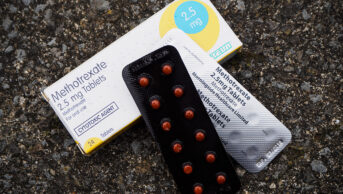
Shutterstock.com
Increased serum oestrogen levels because of hormone replacement therapy (HRT) have been associated with a risk of venous thromboembolism, stroke and invasive breast cancer. However, it is unknown if this applies to low-dose vaginal oestrogen, used to treat genitourinary symptoms of menopause.
In a study in Menopause (online, 14 August 2017), researchers analysed data on 45,663 women aged 50–79 years, who were followed up for a median of 7.2 years, and did not use any systemic (pills or patches) oestrogen during that time[1]
.
In women with an intact uterus, there was no significant difference in risk of stroke, colorectal, endometrial or invasive breast cancer, and pulmonary embolism between those who did and did not use vaginal oestrogen. The risks of coronary heart disease, fracture and all-cause mortality were also significantly lower in vaginal-oestrogen users.
The researchers said the results help to fill a knowledge gap around the safety of vaginal oestrogen and should be reassuring to women choosing HRT.
References
[1] Crandall C, Hovey K, Andrews C et al. Breast cancer, endometrial cancer, and cardiovascular events in participants who used vaginal estrogen in the Women’s Health Initiative Observational Study. Menopause 2017. doi: 10.1097/GME.0000000000000956
You may also be interested in

Patient safety commissioner to approach PM over ‘disappointing’ delay to valproate compensation

GPhC writes to pharmacy teams after methotrexate dispensed with instruction to take once daily
